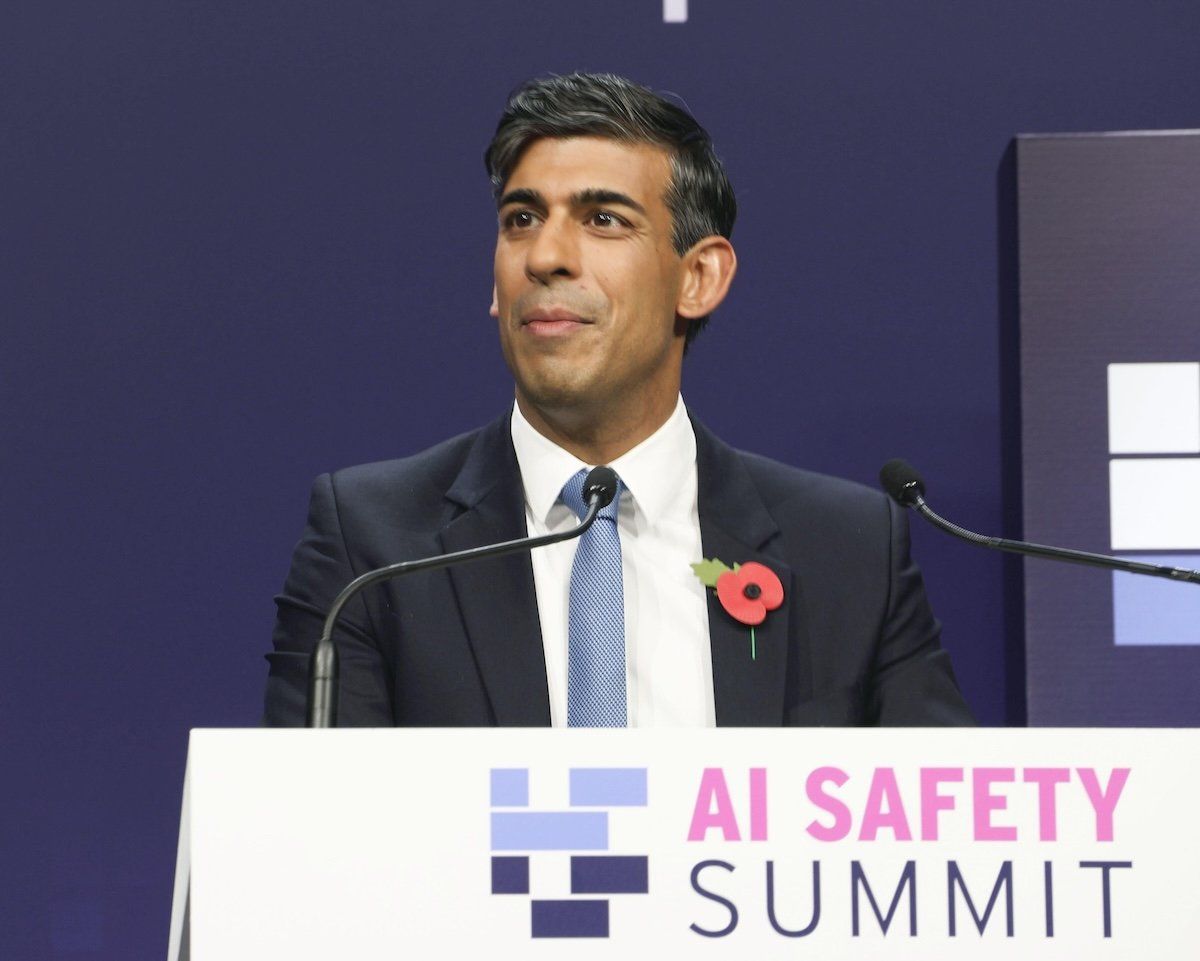British Prime Minister Rishi Sunak speaks during a news conference at the AI Safety Summit in Milton Keynes, near London, last November.
Kyodo via Reuters Connect
Six months after British Prime Minister Rishi Sunak hosted a global summit on artificial intelligence at Bletchley Park, the United Kingdom is making moves to start regulating AI.
Policy officials in the Department for Science, Innovation and Technology have begun drafting legislation to rein in the most potent dangers from AI, sources told Bloomberg News this week. While Europe has set the standard by passing its comprehensive AI Act, Sunak has pledged to take a more hands-off approach to the technology. It’s unclear how far the forthcoming bill, which is still in its early stages, will go in setting up safeguards. Separately, the Department for Culture, Media and Sport has also proposed amending the country’s copyright law to allow companies to “opt out” of having their content scraped by generative AI firms.
